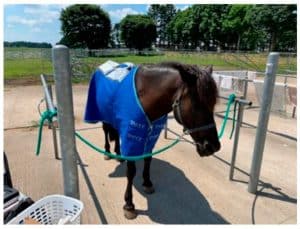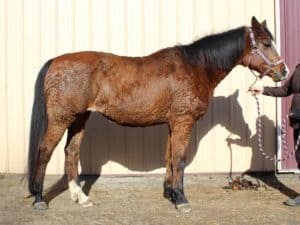
Evaluating Horse Diets: What to Know
Nutritional evaluations take the guesswork out of whether your horse is consuming a balanced diet.


Nutritional evaluations take the guesswork out of whether your horse is consuming a balanced diet.

Equine practitioners are using recent research in their day-to-day practice to diagnose PPID, EMS, and ID.

New study results lead researchers to believe differences in ACTH concentrations between breeds are significant to diagnostic testing for PPID.

7 things to know before a horse colics, so you can maximize the chances of a successful outcome.

Researchers have determined an ice blanket might be more effective for cooling horses than water or fans.

Learn about the differences, and a few key similarities, between these two endocrine diseases.

Learn how to keep your barn and other buildings safe during winter cold and snow.

Often, a horse’s behavior problems are rooted in either pain or incomplete training. Here’s what to consider.

Judges often place overweight ponies—which could be at greater risk for metabolic issues and laminitis—higher than their leaner counterparts in competition.

Horses at different life stages have a variety of immunization requirements, but they’re not as complicated as they might seem.

In the face of gastric ulcer risk factors, omeprazole protected horses’ stomach lining better than sucralfate alone.

From imaging to diagnostic tests, vets have many ways to help horses with EPM, wobbler syndrome, and spinal cord injuries.

Why do some horses wear muzzles, but others don’t? Does your horse need to wear a muzzle year-round? From proper fit to feeding, here’s what you need to know about these weight-loss contraptions.

Here’s what to know about horse inspections, which are designed to evaluate the horse’s fitness to compete.

Experts share 8 tips to increase your thin horse’s weight and muscle mass.

Don’t just focus on teeth when addressing the underweight old horse; prioritize diet and lifestyle changes.
Stay on top of the most recent Horse Health news with